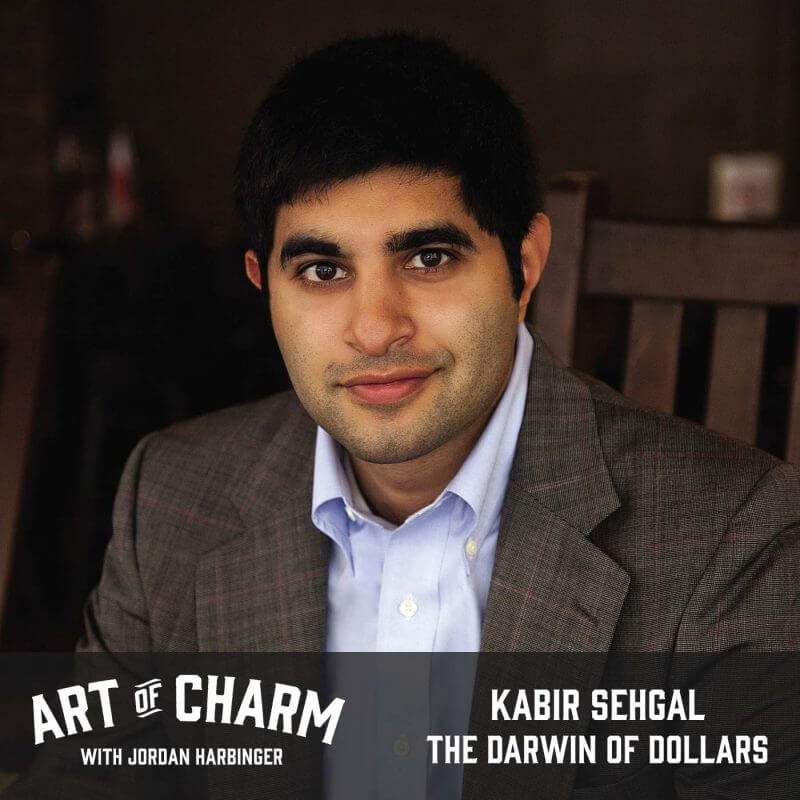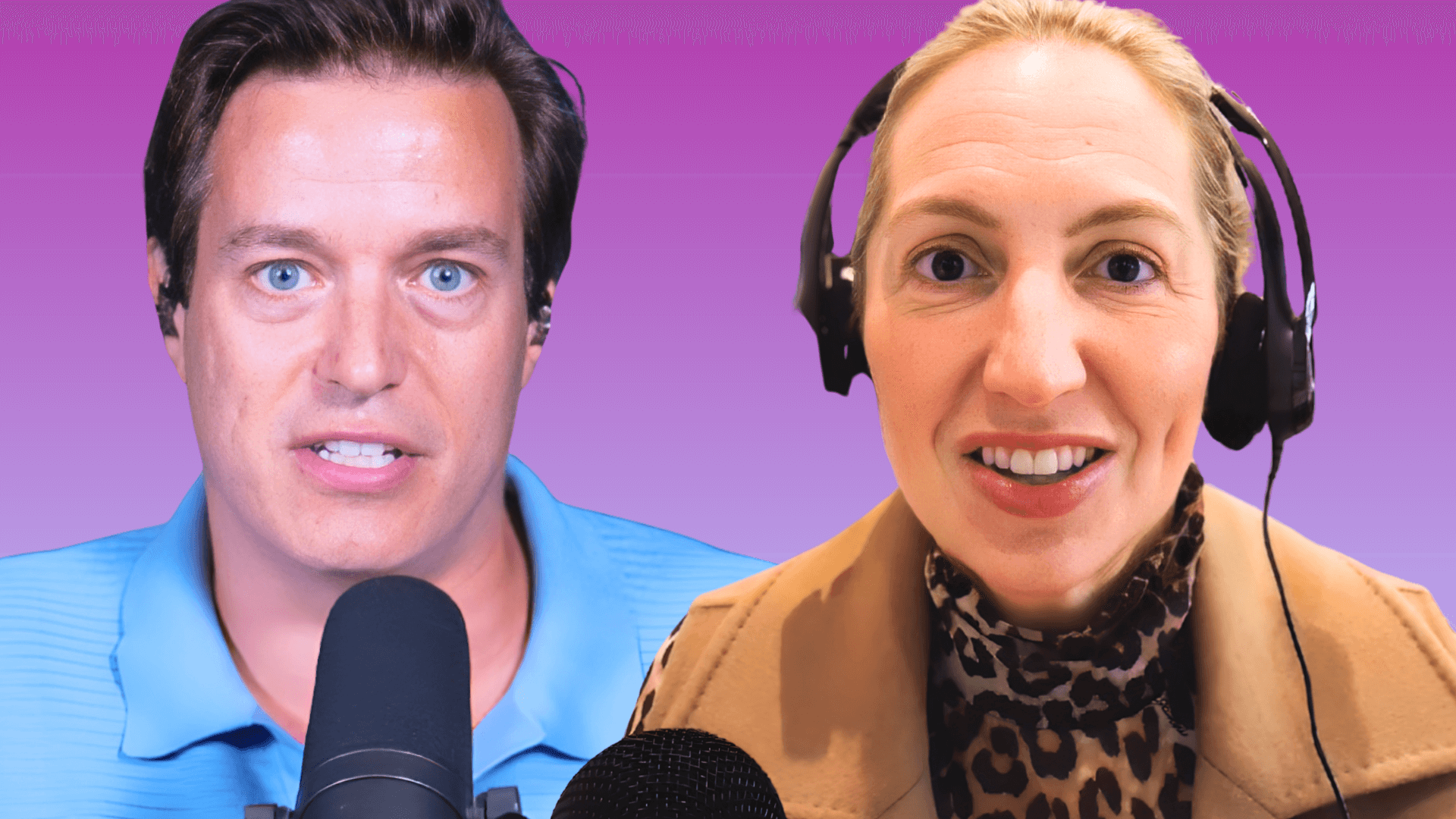Kabir Sehgal (@HiKabir) looks at biological, psychological, and external factors that help us make sense of how we interact with our dollars in his book Coined: the Rich Life of Money and How Its History Has Shaped Us.
The Cheat Sheet:
- What happens in your brain when you think about money? There’s a science for that, and it’s called neuroeconomics.
- The anticipation of gaining money tends to provoke a stronger reaction than having money — part of our survival wiring?
- The way we deal with money is coded on a genetic level — in fact, about 20 percent of your credit score is influenced by your genetics.
- Why should you pay with cash if you’re trying to save money (beyond the obvious reason of avoiding excessive interest payments)?
- Why is the sun a good business barometer?
- And so much more…
[aoc-subscribe]
Money matters to everyone. Whether you’re living paycheck to paycheck or you’ve got life savings that would make King Midas feel like a pauper, your relationship with money is influenced by a number of psychological — and even physiological — factors of which you may not even be aware.
New York Times and Wall Street Journal bestselling author Kabir Sehgal joins us on episode 468 of The Art of Charm to talk about these factors and his latest book, Coined: the Rich Life of Money and How Its History Has Shaped Us.
More About This Show
If you’ve never experienced a sleepless night over financial worries, you’re among the rare and lucky. Money — where it comes from, how we anticipate it, what we do with it once we have it, and how we deal with not having enough of it — has a profound influence on our daily lives. In his book, Coined: the Rich Life of Money and How Its History Has Shaped Us, Kabir Sehgal breaks down economics and currency on a very human level. What he’s found is that our interaction with money goes deeper than an expected psychological level; it has a physically quantifiable impact on us, as well.
“When people are listening to this podcast,” says Kabir, “when I say the word money — when you think about money — there’s likely an increase in skin conductancy. In other words, there’s an electrical current going through your skin. You’re getting a jolt of excitement sent through your body. I looked at this further, and there’s indeed a field called neuroeconomics, which is basically brain scientists that study financial decision making. This is a pretty nascent field, because MRIs really came into being in the late ’90s.
“They’ve taken brain scans of [cocaine] addicts and then they compared it to people who are about to make money — who are about to win money — and they found that the brain scans were identical.”
Kabir tells us about further comparative studies gauging the response of heterosexual males toward pictures of naked women, dead bodies, and money. Guess which one ranked the highest reaction rate? Yep — it was money that provoked a biological response in excess of the other stimuli.
And as organisms have evolved to share symbiotic relationships with one another over time, Kabir learned on a trip to the Galapagos Islands that humans have adapted to deal with money on a genetic level.
And this is why we call Kabir Sehgal The Darwin of Dollars.
“There’s actually one gene that we have — it’s called the COMT (catechol-O-methyltransferase) gene…and there’s two variants of it that are sort of evenly dispersed within the population. If you have one variance of it, you’re more likely to be risk-averse, to have a higher credit score, [and] to have fewer credit lines. If you have the other variance of it, it’s just the opposite — to the tune of about 97 points on a credit score. About 20 percent of your credit score is influenced by your genetics.”
This phenomenon has been studied among identical twins, where it’s observed that — even when separated for long periods of time — they will invest money in a similar manner.
In a scenario straight out of 1997 sci-fi movie Gattaca — about a future where society is stratified by who can afford the technology to grant genetic perfection versus those who cannot — Kabir tells us how some hedge fund managers are including MRI scans of potential hires during the screening process to detect whether their genes favor risk taking or risk aversion.
This isn’t to say you can’t triumph over your genetics if you tend to make poor decisions with money; in fact, being aware of this as a factor can be a powerful first step toward making serious changes and learning mechanisms to cope with your tendencies.
And data shows we can’t count out other factors having a direct influence on how we deal with money. Fluctuations in weather, for instance, directly correlate with fluctuations in the stock market.
“One thing we have really good data on,” says Kabir, “over the last 80 years, are stock market returns. And we also have really good data on weather patterns. And so they looked at 26 markets around the world…that have stock exchanges…and they found on sunny days, the market outperforms about 25 percent annualized versus cloudy days, which is about 12 percent.”
Listen to this episode of The Art of Charm in its entirety to learn more about the factors that influence how we deal with money, why restaurant servers prefer to sit customers outside, how debt is the first type of currency (and how money is really just a measurement of debt), what the difference is between saying “you’re welcome” and “my pleasure,” and lots more.
THANKS, KABIR SEHGAL!
Resources from this episode:
Other books by Kabir Sehgal
Dr. Paul Zak, The Moral Molecule (Episode #179)
The Art of Charm bootcamps
You’ll also like:
-The Art of Charm Toolbox
-Best of The Art of Charm Podcast
On your phone? Click here to write us a well-deserved iTunes review and help us outrank the riffraff!




